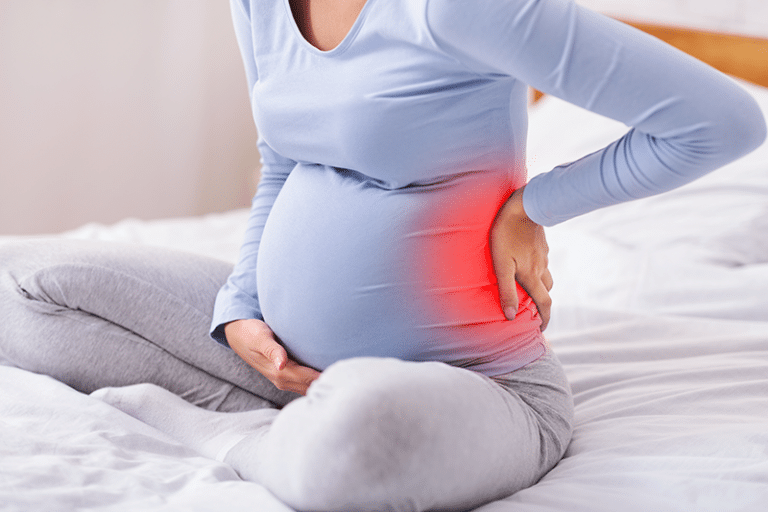
Pregnancy is a beautiful journey, but it can also be accompanied by pain and discomfort. How can expectant mothers manage their pain without harming their unborn children?
Pregnancy is a unique experience for every woman, and with it comes a variety of symptoms like nausea, back pain, and headaches. Managing these symptoms is crucial to ensure a healthy pregnancy. However, traditional pain management methods may not be suitable for expectant mothers as they can harm the fetus.
Proper pain management in pregnant women is essential to ensure a comfortable pregnancy and a healthy baby. Thankfully, there are safe and effective ways to manage pain during pregnancy such as pain medication while pregnant list, pain management in pregnancy, chronic pain management during pregnancy, and treating pain during pregnancy.
Headaches are a common pain presentation that affects people of all ages. They can be caused by different factors such as tension, sinusitis, migraines, or high blood pressure. Headaches can also be a symptom of an underlying medical condition, such as a brain tumor.
To assess a headache, healthcare professionals will perform a physical examination and ask questions about the type of pain, its location, and its duration. They may also recommend imaging tests, such as CT scans or MRI, to rule out any serious underlying conditions.
Back pain is another common pain presentation that affects millions of people worldwide. It can be caused by poor posture, muscle strain, or a herniated disc. Back pain can also be a symptom of an underlying medical condition, such as osteoporosis or arthritis.
Doctors will check your body and ask about your pain, then may suggest tests like X-rays or MRIs to find the reason for it.
Abdominal/pelvic pain is a common pain presentation that can be caused by different factors such as menstrual cramps, urinary tract infections, or gastrointestinal issues. Abdominal/pelvic pain can also be a symptom of an underlying medical condition, such as endometriosis or ovarian cysts.
Traumatic pain is a pain presentation that occurs as a result of an injury or trauma, such as a broken bone or a cut.
Pharmacologic options and routes of administration are important considerations when treating patients with various medical conditions. The choice of medication and the way it is delivered can greatly impact the effectiveness of treatment and the patient’s overall health. Here’s a rundown of some of the most common pharmacological options and routes of administration used in healthcare today:
Pharmacologic options refer to the different types of drugs that are used to treat various medical conditions. These include:
Routes of administration refer to the different ways that medications can be delivered to the body. These include:
Rowing is a demanding sport that can lead to pain and discomfort, particularly in the lower back and legs. There are several pain management options available to rowers, including the use of oxytocin (Pitocin).
Oxytocin is a hormone that is naturally produced in the body and is often used to induce labor in pregnant women. However, it has also been found to have pain-relieving properties and can help reduce the discomfort associated with rowing.
Oxytocin can be administered through an IV or nasal spray and can provide quick and effective relief from pain. It is important to consult with a medical professional before using oxytocin or any other pain management option.
Non-pharmacologic alternatives refer to treatments or therapies that do not involve the use of medication. These alternatives are often sought out by individuals who wish to avoid the potential side effects or risks associated with prescription drugs.
Non-pharmacologic alternatives can include things like exercise, diet changes, acupuncture, massage therapy, and cognitive-behavioral therapy. These alternatives can be effective in treating a variety of conditions, including chronic pain, anxiety, and depression.
It is important to speak with a healthcare provider to determine which non-pharmacologic alternatives may be appropriate for an individual’s specific needs.
Get the Right Pain Management Treatment at Momentum Medical
Pregnancy can be a challenging time for women, especially when it comes to managing pain. From backaches to headaches, pregnancy can cause discomfort and pain in various parts of the body. That’s why it’s essential to choose a reliable medical center like Momentum Medical to help manage pain during pregnancy.
With a team of experienced doctors and medical professionals, Momentum Medical provides safe and effective pain management solutions tailored to the needs of pregnant women. Whether it’s through medication, physical therapy, or other non-invasive treatments, Momentum Medical can help ease the pain and discomfort of pregnancy, allowing women to focus on the joys of motherhood.
Book an appointment with Momentum Medical and let us help you manage pain during pregnancy.
Serving Volusia, Flagler, Orange, Osceola, Hillsborough, Pasco, Pinellas, and Seminole county patients with back pain conditions, sports injury, work injury, headaches, lower back pain, auto accident injuries, neck pain and more.
Our staff can accommodate Spanish, French and Russian speaking patients. All other languages with enough notice we can schedule a translator.
Todas nuestras localizaciones tienen hablantes de español en el personal.
© 2024 Momentum Medical